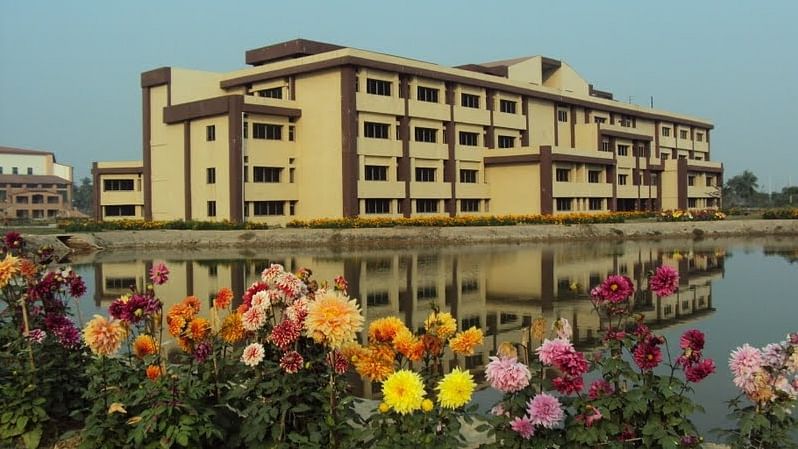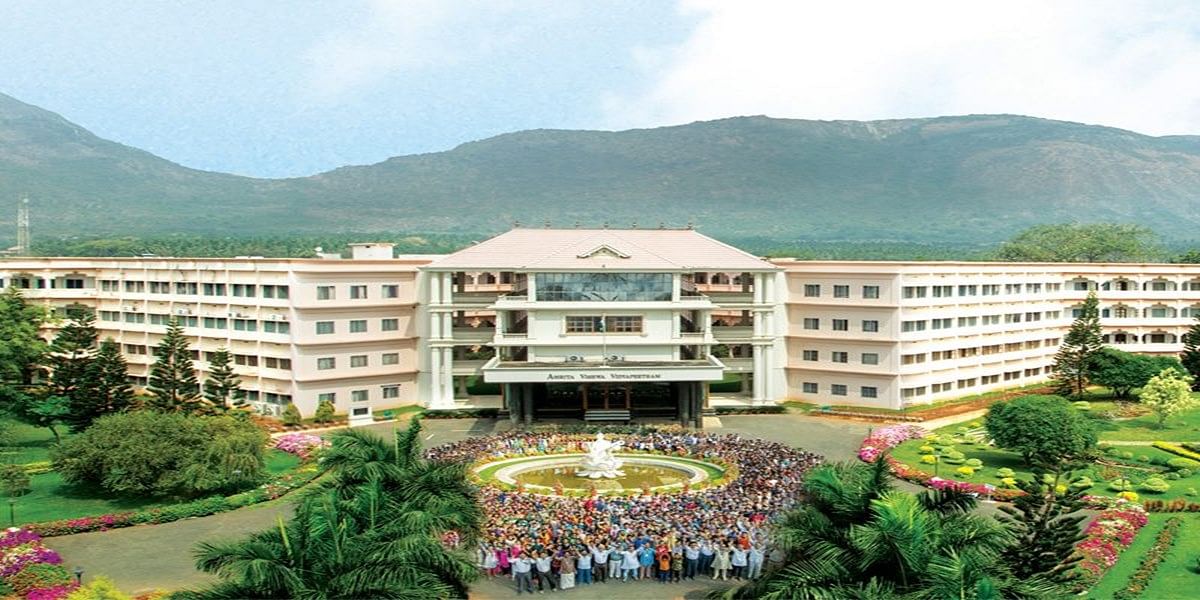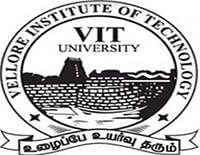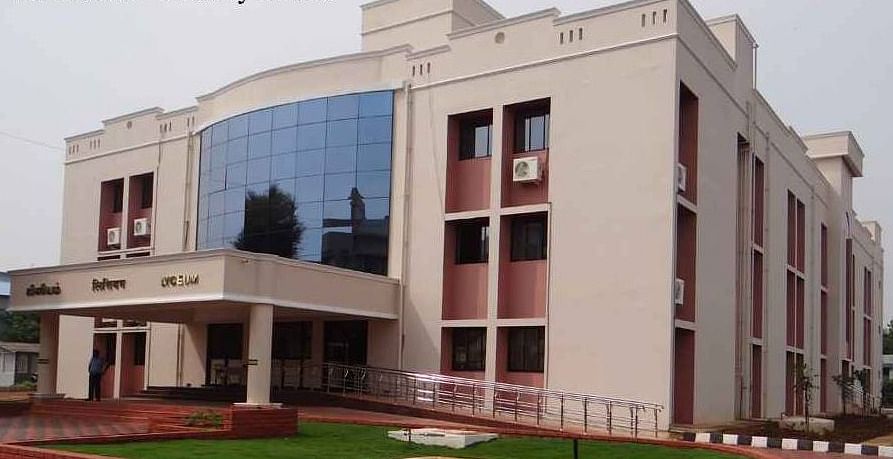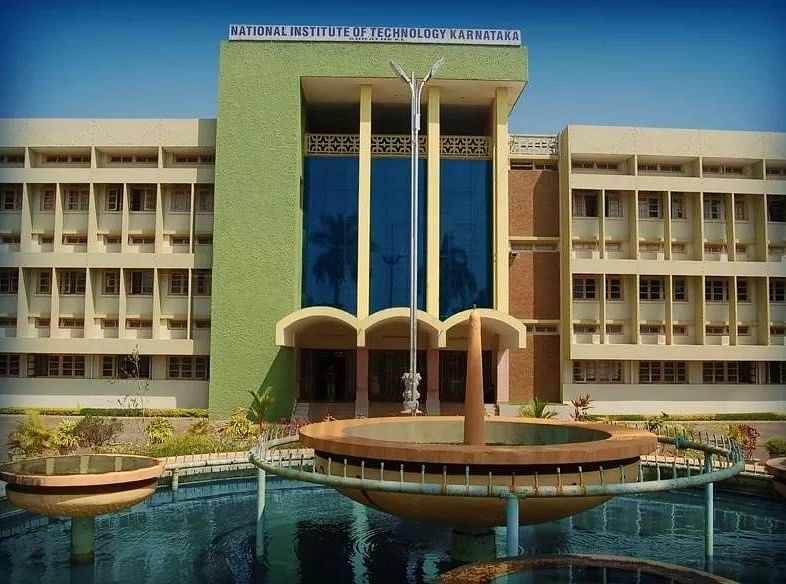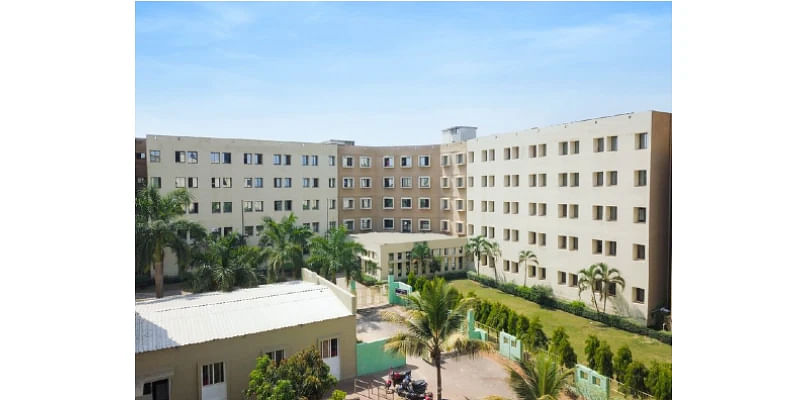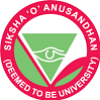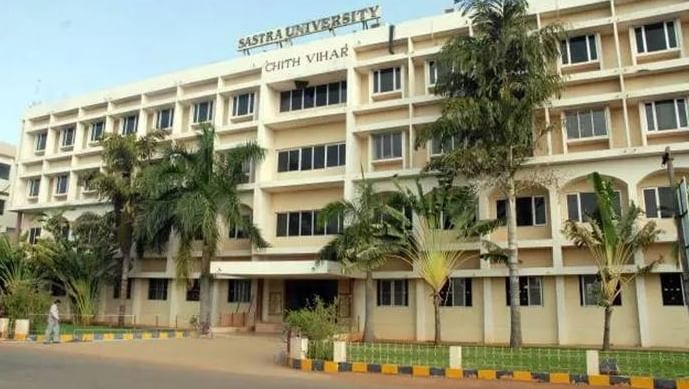B.Tech EEE Syllabus and Subjects

The B.Tech EEE syllabus is structured into eight semesters and focuses on topics such as Electromagnetism, Semiconductor Devices, Analog Electronics, Control Systems, Electrical Energy, and more. The B.Tech in Electrical and Electronics Engineering course curriculum is spread across four years offering a combination of core subjects, elective offerings, practical sessions, internships, seminars, and projects.
The core B Tech EEE subjects deal with the study of important topics such as Electrical Engineering, Circuit Theory, Electrical Machines, Microprocessors, Material Science, Electronics, etc. The elective subjects cover topics such as High Voltage Engineering, Electrical Safety, Communications Engineering, etc., enabling students to specialize in their area of interest.
Table of Contents
B.Tech EEE Syllabus Semester Wise
The BTech EEE syllabus is based on the recommendations of the AICTE and is generally the same across most institutions in India. However, minor variations in certain subjects and elective offerings in the curriculum structure may occur depending on the colleges.
The semester-wise B Tech Electrical and Electronics Engineering syllabus is detailed in the sections below.
B.Tech EEE Syllabus 1st Year
The B.Tech Electrical and Electronics Engineering syllabus for 1st year includes fundamental engineering and science topics such as Physics, Mathematics, Basic Electrical Engineering, etc. Listed below are the B Tech EEE subjects list for the first and second semesters of the course.
|
Semester I |
Semester II |
|
Physics |
Chemistry |
|
Mathematics-I |
Mathematics-II |
|
Programming for Problem Solving |
Basic Electrical Engineering |
|
Engineering Graphics |
English |
|
Energy and Environmental Engineering |
Engineering Workshop |
|
Practical / Lab Work |
Practical / Lab Work |
Practical Topics For B.Tech EEE 1st Year Syllabus
The practical topics for the BTech EEE Engineering 1st year syllabus are listed below.
- Physics Lab
- Chemistry Lab
- Programming Lab
- Electrical Engineering Lab
B.Tech EEE Syllabus 2nd Year
The B Tech EEE syllabus in the second year focuses on topics such as Circuits Theory, Electrical Machines, Power Systems, and more. The B Tech EEE subjects covered in the third and fourth semester are given in the table below.
|
Semester III |
Semester IV |
|
Mathematics-III |
Transform Techniques and Applications |
|
Circuits Theory |
Material Science |
|
Analog Electronics |
Digital Electronics |
|
Electrical Machines-I |
Electrical Machines-II |
|
Electromagnetic Fields |
Power Systems-I |
|
Practical / Lab Work |
Practical / Lab Work |
Practical Topics for B.Tech EEE 2nd Year Syllabus
The practical topics covered in B.Tech EEE 2nd year syllabus are given below.
- Circuits Lab
- Analog Electronics Lab
- Electrical Machines Lab
- Digital Electronics Lab
B.Tech EEE Syllabus 3rd Year
The BTech EEE 3rd year syllabus covers important topics such as Distribution Systems, Transformers, Transducers, and more. The third-year B.Tech EEE Engineering syllabus is provided in the table below.
|
Semester V |
Semester VI |
|
Managerial Economics & Finance |
Microprocessors & Microcontrollers |
|
Power Systems-II |
Power Electronics |
|
Control Systems |
Measurements & Instrumentation |
|
Power System Analysis |
Digital Control Systems / High Voltage Engineering / Electric & Hybrid Vehicles |
|
Power Generation Systems / Digital Signal Processing / Computer Networks |
Seminar |
|
Practical / Lab Work |
Practical / Lab Work |
Practical Topics for B.Tech EEE 3rd Year Syllabus
The practical topics covered in the third-year B.Tech syllabus of EEE Engineering are given below.
- Control Systems Lab
- Microprocessors & Microcontrollers Lab
- Power Electronics Lab
B.Tech EEE Syllabus 4th Year
The BTech EEE syllabus for the fourth year focuses on topics such as Control System Interfaces, Stability Considerations, Project Management, and more. Listed below are the B.Tech EEE 4th year syllabus.
|
Semester VII |
Semester VIII |
|
Power System Dynamics |
Entrepreneurship and Project Management |
|
Distribution System Automation |
Electric Power Quality / Special Electrical Machines / Machine Learning and Deep Learning |
|
Electrical Safety / Wind and Solar Electrical Systems / Solid State Drives |
Embedded System Design / Operations Research / Nano Electronics |
|
Communication Systems / VLSI Design / Artificial Neural Networks |
Project |
|
Practical / Lab Work |
Practical / Lab Work |
Practical Topics for B.Tech EEE 4th Syllabus
Listed below are the B.Tech EEE practical topics for the 4th year syllabus.
- Power Systems Dynamics Lab
- Distribution System Automation Lab
B.Tech EEE Subjects - Core & Electives
The BTech EEE subjects comprise core, elective, and practical subjects that aim to provide students with an extensive understanding of the electronics and electrical engineering principles and advanced concepts. A detailed account of the B.Tech EEE Engineering subjects list along with the topics covered are detailed in the section below.
B.Tech EEE Subjects 1st Year
The B.Tech EEE 1st year subjects focus on providing students with basic knowledge of topics such as Quantum Mechanics, Nanomaterial Properties, Transformers, Engineering Workshops, and more.
The first-year B.Tech EEE Engineering subjects and topics covered under them are given in the table below.
|
Subjects |
Topics Covered |
Subject Type |
|
Physics |
Wave Optics, Quantum Mechanics, Band Theory of Solids, Dielectric Materials, Magnetic Materials, Semiconductors, Lasers |
Core |
|
Mathematics-I |
Linear System of Equations, Differential Equations, Functions of Several Variables, Multiple Integrals |
|
|
Programming for Problem Solving |
Statements, Arrays, Strings, Functions, Pointers, Enumerated, Structure and Union Types |
|
|
Engineering Graphics |
Orthographic Projections, Projection of Solids, Development of Surfaces, Isometric & Orthographic Projections |
|
|
Energy and Environmental Engineering |
Solar Thermal Energy, Power & Energy From Wind Turbines, Biomass Resources, Geothermal Energy Resources, Pollution Greenhouse Gases |
|
|
Chemistry |
Molecular Structure and Theories of Bonding, Crystal Field Theory, Electrochemistry and Corrosion, Periodic Properties and Nanomaterial, |
|
|
Mathematics-II |
Algebraic and Transcendental Equations, Numerical Integration, Laplace Transforms, Vector Differentiation, Vector Integration |
|
|
Basic Electrical Engineering |
Magnetic Circuits and DC Circuits, AC Circuits, DC Machines, Transformers, AC Machines, Power Converters & Switchgear |
|
|
English |
Reading Comprehension, Vocabulary Building, Remedial Grammar, Writing Skills |
|
|
Engineering Workshop |
Carpentry, Fitting, Foundry, Plumbing, Machine Shop, Wood Turning, Welding |
|
|
Physics Lab |
Spectrometer, Diffraction Grating, Newton’s Rings-Radius, Biot-Savart’s Law, Rigidity Modulus |
Laboratory/Practical |
|
Chemistry Lab |
Volumetric Analysis, Chemical Kinetics, Instrumental Methods of Analysis, Synthesis of Drug Molecule |
|
|
Programming Lab |
Simple Computational Problems, Iterative Problems, Applications of 1D & 2D Array Strings, Recursive Functions, Structures |
|
|
Electrical Engineering Lab |
Basic Safety Precautions, Study of Measuring Instruments Cut Converters LT Switchgear, Series Resonance, Parallel Resonance |
B.Tech EEE Subjects 2nd Year
The B.Tech 2nd year EEE subjects deal with crucial topics such as the Theory of Circuits, Power Amplifiers, Electromagnetic Theory, Motors, etc. The B.Tech Electronics and Electrical Engineering subjects 2nd year are detailed in the table below.
|
Subjects |
Topics Covered |
Subject Type |
|
Mathematics-III |
Fourier Series, First Order Partial Differential Equations, Analyticity of Complex Functions, Complex Integration, Residue Calculus |
Core |
|
Circuits Theory |
Faraday’s Laws, Network Topology, Three Phase Circuits, Network Functions, Two Port Network Parameters, Locus Diagrams |
|
|
Analog Electronics |
Diodes, Bipolar Junction Transistor, Mosfet, Power Amplifiers, Linear & Non-Linear Applications of Op-Amp, |
|
|
Electrical Machines-I |
Electromagnetic Force and Torque, DC Machines-Principle Operation Characteristics & Testing, 1-ø Transformers, 3-ø Transformers |
|
|
Electromagnetic Fields |
Static Electric Fields, Conductors, Dielectrics & Capacitance, Static Magnetic Fields, Forces in Magnetic Fields & Inductance |
|
|
Transform Techniques and Applications |
Fourier Transforms, Z-transforms, Random Variables, Probability Theory Distributions, Elementary Signals |
|
|
Material Science |
Properties, Creep, Thermal Properties, Electrical Properties, Magnetic Properties, Dielectric Materials, Insulating Materials, Nano Materials, Material Selection |
|
|
Digital Electronics |
Number Systems, Boolean Algebra, Switching Functions, Combinational Circuits, Combinational Logic, A/D and D/A Converters |
|
|
Electrical Machines-II |
Poly-Phase Induction Motors, Circle Diagram, Synchronous Generators, Synchronous Motors, Special Motors |
|
|
Power Systems-I |
Power Stations, Tariff Methods, Overhead Line Insulators, Underground Cables, Transmission Line Parameters |
|
|
Circuits Lab |
Coupled Circuit, Non-Sinusoidal Waveform, Thevenin’s Theorem, Norton’s Theorem, Maximum Power Transfer Theorems |
Laboratory/Practical |
|
Analog Electronics Lab |
Circuit Components, Display Devices, Semiconductor Device Characteristics, Frequency Response of Amplifiers, OP-Amp |
|
|
Electrical Machines Lab |
Brake Test, Load Test, Hopkinson’s Test, Swinburne’s Test, Retardation Test, Field’s Test, ZPF and ASA Methods |
|
|
Digital Electronics Lab |
Identify Digital ICs, Functions, Design Combinational Logic Circuits, Sequential Logic Circuits, Resolution of ADC & DAC |
B.Tech EEE Subjects 3rd Year
The third-year EEE B Tech subjects cover important topics such as Stability Analysis, Fault Studies, Semiconductor Devices, Signal Generators, etc. The B.Tech Electrical and Electronics Engineering subjects and topics covered in the third year are listed below.
|
Subjects |
Topics Covered |
Subject Type |
|
Managerial Economics & Finance |
Managerial Economics, Demand Analysis, Demand Forecasting, Production Analysis, Cost Analysis, Market Structure, Financial Accounting |
Core |
|
Power Systems-II |
Transmission Lines, Power System Transients, Substations, GIS, Voltage Control, D.C. & A.C. Distribution Systems, |
|
|
Control Systems |
Transfer Function Representation, Time Response Analysis, Stability Analysis, Frequency Response, State Space Analysis |
|
|
Power System Analysis |
Power System Components, Power Flow Analysis Methods, Fault Studies, Fault Analysis, Stability Studies |
|
|
Microprocessors & Microcontrollers |
8086 Architecture, Instruction Set, Assembly Language Programming of 8086, 8051 Real Time Control, Serial Communication, Bus Interface |
|
|
Power Electronics |
Power Semiconductor Devices, Phase Controlled Rectifiers, DC-DC Converters, A.C. Voltage Controllers |
|
|
Measurements & Instrumentation |
Measurement Standards, Measurement of Power & Energy, kVAh and kVARh Meters, Instrument Transformers, Transducers, Signal Sources, Oscilloscopes, Signal Generators |
|
|
Power Generation Systems |
Hydro-Electric Power Plants, Thermal Steam Power Plants, Nuclear Power Plants, Combined Operation of Power Plants |
Elective |
|
Digital Signal Processing |
Discrete Fourier Transform, Amplitude & Phase Response of FIR Filters, IIR Digital Filters, Signal Processor & Motion Controller Architecture |
|
|
Digital Control Systems |
ADC Model, DAC Model, Analog Subsystem, Asymptotic Stability, Exponential Stability, Root Locus, State Space Method |
|
|
High Voltage Engineering |
Generation of High Voltages, Measurements of High Voltages & Currents, Lightning & Switching Over-voltages, High Voltage Testing of Electrical Apparatus |
|
|
Electric & Hybrid Vehicles |
Vehicle Fundamentals, Energy Storage, Electric Propulsion System, Electric Propulsion Drive Systems, Design Specifications |
|
|
Control Systems Lab |
Transfer Function, Synchros, PID Controller, Stability Analysis, Design Lag, Lead & Lag-Lead Compensator |
Laboratory/Practical |
|
Microprocessors & Microcontrollers Lab |
Illustrate Assembly Language Programming, Design Circuits, Analog/Digital Interfaces, 8086 & 8051 Programs |
|
|
Power Electronics Lab |
SCR, MOSFET, IGBT, Pulse Transformer, RL Loads, Forced Communication Circuits, MATLAB |
B.Tech EEE Subject 4th Year
The B.Tech subjects in Electrical and Electronics Engineering 4th year focus on topics such as Synchronous Machines, Distribution Systems, Control Systems Interfaces, etc. The B.Tech EEE subject list and topics covered in the fourth year are given below.
|
Subjects |
Topics Covered |
Subject Type |
|
Power System Dynamics |
Stability Considerations, Synchronous Machines, Induction Motor, Transient & Dynamic Stability Distinction |
Core |
|
Distribution System Automation |
Control System Interfaces, Layouts of Substations & Feeders, DA Communication Requirements, DA Benefit Categories |
|
|
Entrepreneurship and Project Management |
Entrepreneurial Finance, Profit Planning Techniques, Project Management, Entrepreneurial Marketing |
|
|
Electrical Safety |
Primary & Secondary Hazards, Grounding & Bonding, Six Step Safety Methods, Electrical Safety Programme Structure |
Elective |
|
Wind and Solar Electrical Systems |
Solar Spectrum, Solar Energy Statics, PV Module, Wind Statistics, Turbine Power Characteristics, Aerodynamics, Power Electronic Converters |
|
|
Solid State Drives |
DC Motor Drives, Speed Control, Chopper Fed DC Motor Drives, Stator Voltage Control Schemes, Vector Control |
|
|
Communication Systems |
Analog Modulation, Amplitude Modulation, AM Transmitters & Receivers, Angle Modulation, Sampling Theorem, Modern Communication System |
|
|
VLSI Design |
MOS Characteristics, CMOS Fabrication, CMOS Logic Circuits, Memory Design, ASIC |
|
|
Artificial Neural Networks |
Classification, Linear Separability, Adaline Network, Adaptive Resonance Theory Neural Networks, Hopfield Neural Networks, Deep Neural Networks |
|
|
Electric Power Quality |
Electric Power Quality Phenomena, Power Quality Indices & Monitoring, Voltage Variations, Harmonics, Custom Power Devices |
|
|
Special Electrical Machines |
Axial & Radial Flux Motors, Torque Equations, Closed Loop Control, Permanent Magnet Materials, EMF and Torque Equations |
|
|
Machine Learning and Deep Learning |
Classification and Clustering, Perceptron Learning Algorithm, Linear Separability, Feedforward Networks, ML and DL Applications, |
|
|
Embedded System Design |
Embedded System Architectures, Sensor & Actuator I/O, RTOS, Embedded Networks, System Design |
|
|
Operations Research |
Transportation Problem, Assignment Model, Sequencing Model, Dynamic Programming, Games Theory, Replacement Models |
|
|
Nano Electronics |
Ballistic Transport, Quantum Confinement, Resonant Tunneling, Electron Wave Transistor, Nano Tube Theory, Spintronics |
|
|
Power Systems Lab |
CT, PT, Insulator String, Protection Relays, Fault Analysis, MATLAB Simulation, GS Method & FD Method |
Laboratory/Practical |
|
Distribution System Automation Lab |
SCADA Systems, PLC Programming, Smart Grid Technologies, Fault Detection, Isolation |
BTech EEE Course Structure
The course structure for B.Tech EEE includes a combination of core and elective courses and additional skill enhancement courses for the overall development of the students. The course structure followed by most institutions in India is outlined below.
- VIII Semesters
- Core Subjects
- Elective Subjects
- Practicals
- Projects
- Internships
- Industrial Training
B.Tech EEE Teaching Methodologies and Techniques
The B.Tech EEE course curriculum employs a variety of methods and techniques of teaching to equip students with an extensive understanding of the subject matter. Listed below are the B.Tech EEE teaching methodologies and techniques followed by most colleges and universities in India:
- Lectures
- Laboratory
- Group Discussions
- Case Studies
- Workshops
- Guest Lectures
- Industrial Visits
B.Tech EEE Projects
The B.Tech EEE projects are an integral part of the curriculum that aids students in applying their theoretical knowledge to practical and real-world applications. The common project topics for B.Tech EEE are listed below.
- Develop an automated system that adjusts the power factor of an electrical load.
- Design a microgrid that can operate independently or in combination with the maingrid.
- Design and implement a PID controller to regulate the speed of a DC motor.
- Develop a solar-powered water pump for agricultural or domestic use.
- Combine solar panels and wind turbines to create a hybrid energy system.
B.Tech EEE Books
The B.Tech EEE books help students understand the complex concepts and theories related to the subject by providing detailed explanations with the latest information. The B.Tech EEE reference books are provided in the sections below for each year.
B.Tech EEE Books 1st Year
The B.Tech EEE course books 1st year deal with topics such as Physics, Programming, Electrical Engineering, etc. The first-year B.Tech EEE books are provided in the table below.
|
Books |
Authors |
Topics Covered |
|
Quantum Physics |
Eisberg and Resnick |
Wave-particle Duality, Quantum States, Atomic Models |
|
Introduction to C Programming |
Reema Thareja |
Data Types, Control Structures, Pointers, File Handling |
|
Principles of Electrical Engineering |
V. K. Mehta |
DC Circuits, AC Circuits, Transformers, Power Systems |
|
Electrical Engineering Fundamentals |
V. DelToro |
Circuit Analysis, Electromagnetism, Control Systems |
B.Tech EEE Books 2nd Year
The second-year B.Tech EEE books cover topics such as Mathematical Analysis, Electromagnetic Fields, Electrical Machines, etc. The reference books for the BTech EEE second year are given below.
|
Books |
Authors |
Topics Covered |
|
Higher Engineering Mathematics |
Dr.B.S. Grewal |
Linear Algebra, Calculus, Differential Equations |
|
Network Theory |
N. C. Jagan & C. Lakshminarayana |
Circuit Analysis Methods, Network Functions, Transient Analysis |
|
Linear Integrated Circuits |
D. Roy Chowdhury |
Operational Amplifiers, Analog Filters, Comparator Circuits |
|
Electric Machines |
I. J. Nagrath and D.P. Kothari, |
DC Machines, Transformers, Induction Motors |
B.Tech EEE Books 3rd Year
The B.Tech EEE books for the third year focus on topics such as Power Systems, Control Systems, Propulsion Systems, etc. Below listed are the B.Tech EEE third-year books.
|
Books |
Authors |
Topics Covered |
|
Electrical Power Systems |
C.L.Wadhwa |
Transmission Lines, Insulators, Load Flow Analysis |
|
Automatic Control Systems |
B. C. Kuo |
Stability Analysis, Control System Design, State-Space Analysis |
|
Microprocessors and Interfacing |
D. V. Hall |
8085, 8086, Assembly Language Programming |
|
Power Electronics |
P.S. Bimbhra |
Rectifiers & Inverters, Choppers, Power Quality |
B.Tech EEE Books 4th Year
The B.Tech EEE fourth-year books focus on topics such as Power System Dynamics, Distribution Systems Automation, Project Management, etc. Below listed are the B.Tech EEE books for the fourth year.
|
Books |
Authors |
Topics Covered |
|
Power System Optimization |
D.P. Kothari and J.S. Dhillon |
Optimization Techniques, Optimal Power Flow, State Estimation |
|
Electric Power Distribution System Engineering |
Gonen |
Distribution Substations, Power Quality, Distribution Automation |
|
Entrepreneurial Development |
Dr. S. S.Khanka |
Business Opportunity Identification, Business Planning, Project Formulation |
|
Communication Systems |
Simon Haykins |
Amplitude Modulation, Angle Modulation, Information Theory |
Top B.Tech Electrical and Electronics Engineering Colleges
Top Engineering Entrance Exams
B.Tech Electrical and Electronics Engineering Fee Structure
FAQs on B.Tech Electrical and Electronics Engineering Syllabus and Subjects
Q: What are the subjects in EEE B.Tech 1st semester?
Q: What are the core subjects in the BTech EEE 2nd semester syllabus?
Q: What are the subjects in Electrical and Electronics Engineering second year?
Q: What are the practical subjects in BTech EEE Engineering 1st year?
Q: What are the elective B.Tech EEE 5th sem subjects?
Q: How is the B.Tech EEE syllabus assessed?
Q: Where to find the B.Tech Electronics and Electrical Engineering subjects list all semester PDF?
Q: Is there coding in the BTech EEE syllabus?
